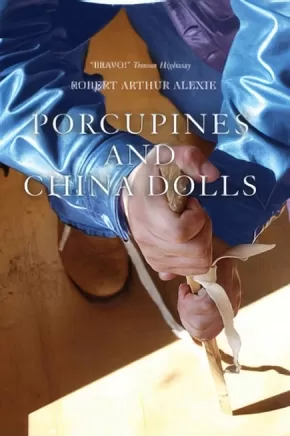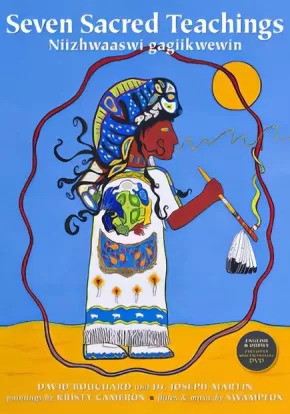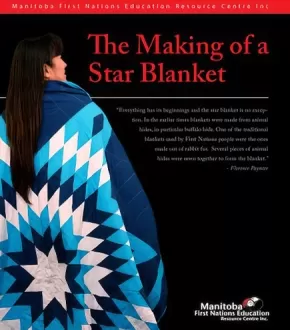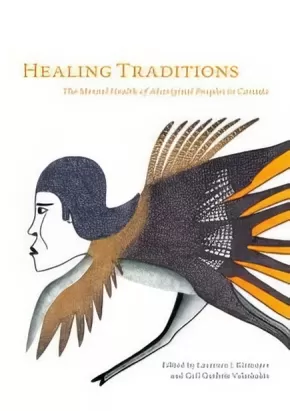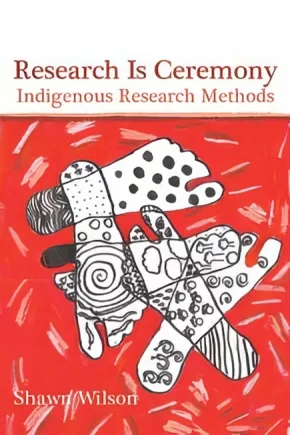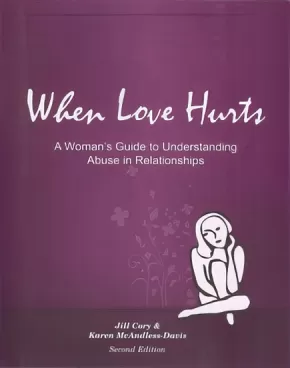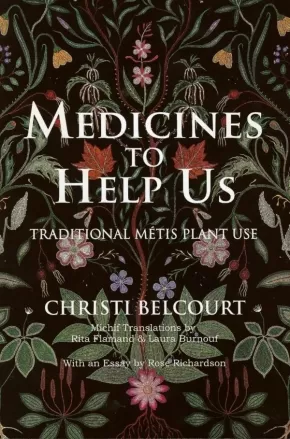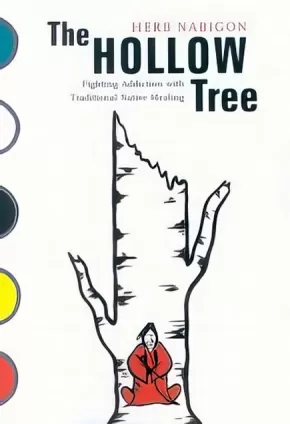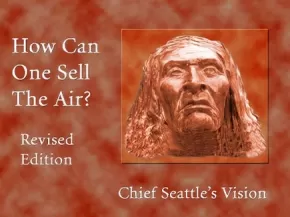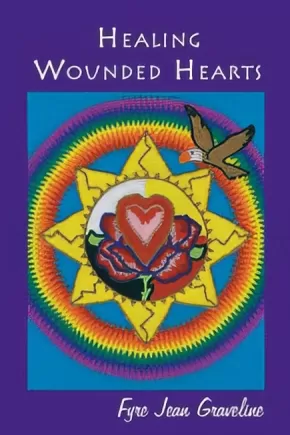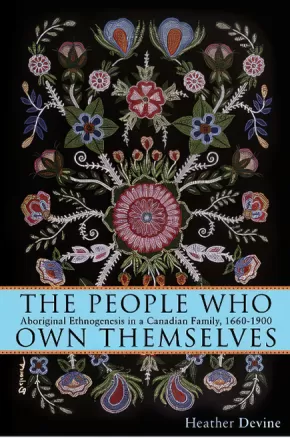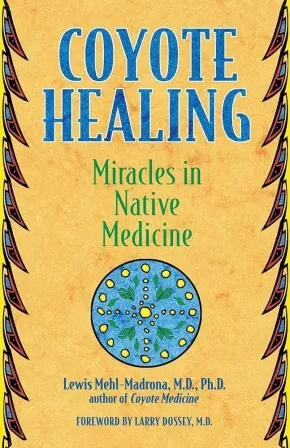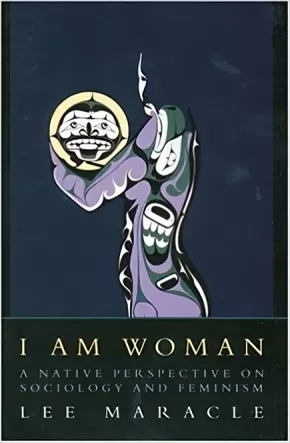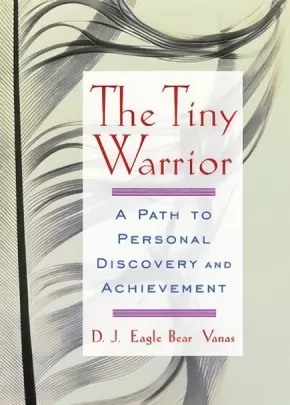
Healing and Wellness
271
-
285
of
303 Results;
Sort By
Go To
of 21
Porcupines and China Dolls (1 in stock, in reprint)
$24.95
Format:
Hardcover
Text Content Territories:
Indigenous Canadian; First Nations; Dene; Dinjii Zhuh (Gwich'in);
ISBN / Barcode: 9781894778688
Synopsis:
Synopsis:
James Nathan and Jake Noland have been best friends for their entire lives. Like most residents in their small northern Gwich’in community, they like to get drunk, get high and sleep around. It helps them forget the past—a horrific past full of painful memories. At times just one bullet to the temple away from a self-inflicted death, James and Jake fumble through life, tormented and haunted by the demons of their residential school abuse.
The decision by one man to publicly disclose his abuse causes upheaval within the community and forces other victims to consider their options: either share their secret and begin healing, or maintain their silence and suffer alone. Raw and gripping, Porcupines and China Dolls is impossible to put down.
Educator Information
Resource for English First Peoples 11-12.
Additional Information
312 pages | 6.00" x 9.00"
Seven Sacred Teachings: Niizhwaaswi gagiikwewin
$24.95
Artists:
Format:
Hardcover
Text Content Territories:
Indigenous Canadian;
Reading Level: N/A
ISBN / Barcode: 9780978432720
Synopsis:
Synopsis:
Seven Sacred Teachings is a message of traditional values and hope for the future. The Teachings are universal to most First Nation peoples. These Teachings are seen in school communities from coast to coast across North America. They are a link that ties all Native, Inuit and Métis communities together.
The seven teachings include: respect, humility, love, truth, honesty, wisdom and courage. The stories in the book provide an example of how each teaching came to be.
Educator Information
Seven Sacred Teachings has been produced in several languages. This edition is in English and Ojibwe.
This resource is also available in French: Les Sept enseignements sacrés
Taking Back Our Spirits: Indigenous Literature, Public Policy, and Healing
$27.95
Format:
Paperback
Text Content Territories:
Indigenous Canadian;
ISBN / Barcode: 9780887557101
Synopsis:
Synopsis:
From the earliest settler policies to deal with the “Indian problem,” to contemporary government-run programs ostensibly designed to help Indigenous people, public policy has played a major role in creating the historical trauma that so greatly impacts the lives of Canada’s Aboriginal peoples. Taking Back Our Spirits traces the link between Canadian public policies, the injuries they have inflicted on Indigenous people, and Indigenous literature’s ability to heal individuals and communities. Episkenew examines contemporary autobiography, fiction, and drama to reveal how these texts respond to and critique public policy, and how literature functions as “medicine” to help cure the colonial contagion.
The Making of a Star Blanket
$8.00
Format:
Paperback
Text Content Territories:
Indigenous Canadian;
ISBN / Barcode: 9780978080846
Synopsis:
Synopsis:
This resource provides an opportunity for students to work with paper and colour, while integrating the concept of numbers into the learning and teaching process. The hands-on experience of being able to fold paper into different shapes, patterns and designs, and add colour is an effective strategy to motivate students to learn math. The section, “The Star Blanket Making Process From the Sewing Perspective,” shows a step-by-step progression of how to assemble a star blanket. Not only does it teach practical skills, it also teaches patience and builds positive self-esteem within the learner.
Educator Information
While the publisher of this work indicates it's a useful math resource, it has been expressed by educators that this is not a useful math resource.
Healing Traditions: The Mental Health of Aboriginal Peoples in Canada (1 in Stock)
$55.95
Format:
Paperback
Text Content Territories:
Indigenous Canadian;
Grade Levels: University/College;
ISBN / Barcode: 9780774815246
Synopsis:
Synopsis:
Aboriginal peoples in Canada have diverse cultures but share common social and political challenges that have contributed to their experiences of health and illness. This collection addresses the origins of mental health and social problems and the emergence of culturally responsive approaches to services and health promotion. Healing Traditions is not a handbook of practice but a resource for thinking critically about current issues in the mental health of indigenous peoples.
The book is divided into four sections: an overview of the mental health of indigenous peoples; origins and representations of social suffering; transformations of identity and community; and traditional healing and mental health services. Cross-cutting themes include: the impact of colonialism, sedentarization, and forced assimilation; the importance of land for indigenous identity and an ecocentric self; notions of space and place as part of the cultural matrix of identity and experience; and processes of healing and spirituality as sources of resilience.
Offering a unique combination of mental health and socio-cultural perspectives, Healing Traditions will be useful to all concerned with the well being of Aboriginal peoples including health professionals, community workers, planners and administrators, social scientists, educators, and students.
Also available in hardcover.
Research Is Ceremony
$28.00
Format:
Paperback
Text Content Territories:
Indigenous Australian; Indigenous Canadian;
ISBN / Barcode: 9781552662816
Synopsis:
Synopsis:
Indigenous researchers are knowledge seekers who work to progress Indigenous ways of being, knowing and doing in a modern and constantly evolving context. This book describes a research paradigm shared by Indigenous scholars in Canada and Australia, and demonstrates how this paradigm can be put into practice. Relationships don’t just shape Indigenous reality, they are our reality. Indigenous researchers develop relationships with ideas in order to achieve enlightenment in the ceremony that is Indigenous research. Indigenous research is the ceremony of maintaining accountability to these relationships. For researchers to be accountable to all our relations, we must make careful choices in our selection of topics, methods of data collection, forms of analysis and finally in the way we present information. I’m an Opaskwayak Cree from northern Manitoba currently living in the Northern Rivers area of New South Wales, Australia. I’m also a father of three boys, a researcher, son, uncle, teacher, world traveller, knowledge keeper and knowledge seeker. As an educated Indian, I’ve spent much of my life straddling the Indigenous and academic worlds. Most of my time these days is spent teaching other Indigenous knowledge seekers (and my kids) how to accomplish this balancing act while still keeping both feet on the ground.
When Love Hurts: A Woman's Guide to Understanding Abuse in Relationships (2 in Stock) - ON SALE
$16.50 $24.00
Format:
Paperback
ISBN / Barcode: 9780425274286
Synopsis:
Synopsis:
Love is meant to be supportive. But what happens when you are hurt by the one you love? This book will help women interpret their relationship in valuable new ways. Drawing on their own wisdom and the wisdom of many women who share their experience, When Love Hurts helps women find the answers they’re looking for. When Love Hurts explores many difficult questions...
Medicines to Help Us: Traditional Métis Plant Use
$25.00
Artists:
Text Content Territories:
Indigenous Canadian; Métis;
ISBN / Barcode: 9780920915790B
Synopsis:
Synopsis:
Based on Métis artist Christi Belcourt’s painting “Medicines to Help Us,” this innovative and vibrant resource honours the centuries-old healing traditions of Métis women. With contributions from Métis Elders Rose Richardson and Olive Whitford, as well as key Michif phrases and terminology, Medicines to Help Us is the most accessible resource relating to Métis healing traditions produced to date.
Educator Information
This resource guide does not include the study prints referred to on the back cover and within the book.
Michif Translators: Laura Burnoff and Rita Flamand
Elder Validation: Rose Richardson
Format: Book Only - English, with plant names in Michif, Nehiyawewin (Cree), and Anishinaabemowin (Ojibway)
The Hollow Tree Fighting Addiction with Traditional Native Healing
$20.95
Format:
Paperback
Text Content Territories:
Indigenous Canadian; First Nations; Anishinaabeg; Ojibway; Cree (Nehiyawak);
ISBN / Barcode: 9780773531321
Synopsis:
Synopsis:
Before discovering native healing methods, Herb Nabigon could not imagine a life without alcohol. His powerful autobiography, The Hollow Tree, tells the story of his struggle to overcome addiction with the help of the spiritual teachings and brotherly love of his elders.
Nabigon had spent much of his life wrestling with self-destructive impulses, feelings of inferiority and resentment, and alcohol abuse when Eddie Bellerose, an Elder, introduced him to the ancient Cree teachings. With the help of healing methods drawn from the Four Sacred Directions, the refuge and revitalization offered by the sweat lodge, and native cultural practices such as the use of the pipe Nabigon was able to find sobriety.
The Hollow Tree is one person's testament to the power of indigenous culture to heal. Herb Nabigon's healing journey guided him to a life of kindness, honesty, courage, and humility.
How Can One Sell the Air?
$11.95
Artists:
Editors:
Format:
Paperback
Text Content Territories:
Indigenous American; Native American; Salish; Coast Salish; Suquamish ;
ISBN / Barcode: 9781570671739
Synopsis:
Synopsis:
Chief Seattle’s impassioned plea to respect “the sacred web of life” has become an inspiration to many. This thoroughly researched collection includes two popular 20th-century adaptations as well as a version of the speech that has been passed via the oral tradition among Suquamish elders from Chief Seattle’s tribe.
"A valuable reference for Native American history and for those interested in the ecological efforts to preserve harmony with the earth." —Kliatt magazine
Healing Wounded Hearts
$29.00
Format:
Paperback
Text Content Territories:
Indigenous Canadian; Métis;
ISBN / Barcode: 9781552661420
Synopsis:
Synopsis:
Healing Wounded Hearts brings together stories, poems and artwork that illustrate the struggles and strengths that Fyre Jean has, as a Métis Woman, living everyday in intersecting, parallel, sometimes colliding, socio-cultural realities. Baring her Heart and Soul, she shares personal, painful, spiritual discoveries of how life and worlds work, through Stories that have grown her into who she is. Through a blend of original research, reflective journals and creative use of dialogue, people, places, times, events, beings come alive. Simultaneously Traditional and Experimental, Factual and Fictional, her word choice and placement foreground questions of Authority, Power and Privilege. Fyre Jean is a wordsmith who bends and shapes languages, to make Truth, to Transform, to Move herself and her readers from one Place, Condition, Reality, to another. Healing Wounded Hearts is a process, a flow, a Journey. When you open this book, you open a Doorway to Healing. Be prepared to experience her worlds—personal and political, academic and artistic, humorous and tragic. You will be enlightened, inspired, moved, surprised into new ways of Seeing, Believing, Being. A must read for social activists, academics, artists, helpers and those on a Healing Journey.
The People Who Own Themselves: Aboriginal Ethnogenesis in a Canadian Family, 1660-1900
$39.95
Format:
Paperback
Text Content Territories:
Indigenous Canadian; Métis;
Grade Levels: University/College;
ISBN / Barcode: 9781552386606
Synopsis:
Synopsis:
The search for a Métis identity and what constitutes that identity is a key issue facing many Aboriginals of mixed ancestry today.
The People Who Own Themselves: Aboriginal Ethnogenesis in a Canadian Family, 1660-1900 reconstructs 250 years of Desjarlais family history across a substantial area of North America, from colonial Louisiana, the St. Louis, Missouri, region, and the American Southwest to Red River and Central Alberta. In the course of tracing the Desjarlais family, social, economic, and political factors influencing the development of various Aboriginal ethnic identities are discussed. With intriguing details about Desjarlais family members, this book offers new, original insights into the 1885 Northwest Rebellion, focusing on kinship as a motivating factor in the outcome of events. With a unique how-to appendix for Métis genealogical reconstruction, this book will be of interest to Métis wanting to research their own genealogy and to scholars engaged in the reconstruction of Métis ethnic identity.
Additional Information
358 pages | 6.00" x 9.00" | Paperback
Coyote Healing: Miracles in Native Medicine
$21.95
Format:
Paperback
Text Content Territories:
Indigenous American; Native American;
ISBN / Barcode: 9781591430100
Synopsis:
Synopsis:
Distills the basic principles used by Native American healers to create miracles.
• Explores the power of miracles in both traditional Native American healing and modern scientific medicine.
• Cites numerous cases in which people whose conditions were deemed hopeless were miraculously healed.
• Enables readers to start their own healing journey through the exploration of purpose, meaning, and acceptance.
• By the author of Coyote Medicine.
Native American healers expect miracles and prepare in all possible ways for them to occur. In modern medicine, miraculous recoveries are discarded from studies as anomalous cases that will taint the otherwise orderly results. Yet this small group of "miracle" patients has much to teach us about healing and survival.
Coyote Healing distills the common elements in miracle cures to help people start their own healing journey. Looking at 100 cases of individuals who experienced miracle cures, Dr. Mehl-Madrona found the same preconditions that Native American healers know are necessary in order for miracles to occur. The author reveals what he learned from both his own practice and the interviews he conducted with survivors about the common features of their path back to wellness. Survivors found purpose and meaning in their life-threatening illness; peaceful acceptance was key to their healing. Coyote Healing also tells of another kind of miracle--finding faith, hope, and serenity even when a cure seems impossible.
I Am Woman: A Native Perspective on Sociology and Feminism
$19.95
Format:
Paperback
Text Content Territories:
Indigenous Canadian; First Nations; Cree (Nehiyawak); Salish; Coast Salish; Sto:lo;
Grade Levels: University/College;
ISBN / Barcode: 9780889740594
Synopsis:
Synopsis:
I Am Woman represents my personal struggle with womanhood, culture, traditional spiritual beliefs and political sovereignty, written during a time when that struggle was not over. My original intention was to empower Native women to take to heart their own personal struggle for Native feminist being. It remains my attempt to present a Native woman's sociological perspective on the impacts of colonialism on us, as women, and on my self personally.
Reviews
One of the foremost Native writers in North America, Lee Maracle links her First Nations heritage with feminism in this visionary book. "Maracle has created a book of true wisdom, intense pride, sisterhood and love." -Milestones Review
Additional Information
146 pages | 8.23" x 8.52"
The Tiny Warrior: A Path to Personal Discovery and Achievement
$10.99
Text Content Territories:
Indigenous American; Native American;
ISBN / Barcode: 9780740733888
Synopsis:
Synopsis:
Why seek outside answers when you already possess the resources and power you need? In a world moving faster than ever, the challenge to stay connected to others, your visions, and yourself is great. The Tiny Warrior teaches how to look inward and find strength by learning to use your warrior spirit. In Native American traditions, warriors had a creed "to develop themselves as assets to the village they served. Your "village" can be your family, community, company, clients, or the world” anyone you serve. The warrior concept transcends race, gender, or age.
Noted Native American speaker turned author D. J. Eagle Bear Vanas uses wisdom from his Odawa Indian roots and his path as an officer in the U.S. Air Force and later as an entrepreneur to interweave the Native tradition of storytelling with practical key bits of knowledge to live and learn by. By following Vanas's direction, you can develop your talent and ability to better serve and defend others. As a bonus, Vanas includes "Reflections and Breakthroughs" space at the end of the book for you to record your own revelations on each chapter.
Additional Information
96 pages | 5.20" x 7.00"
Sort By
Go To
of 21

